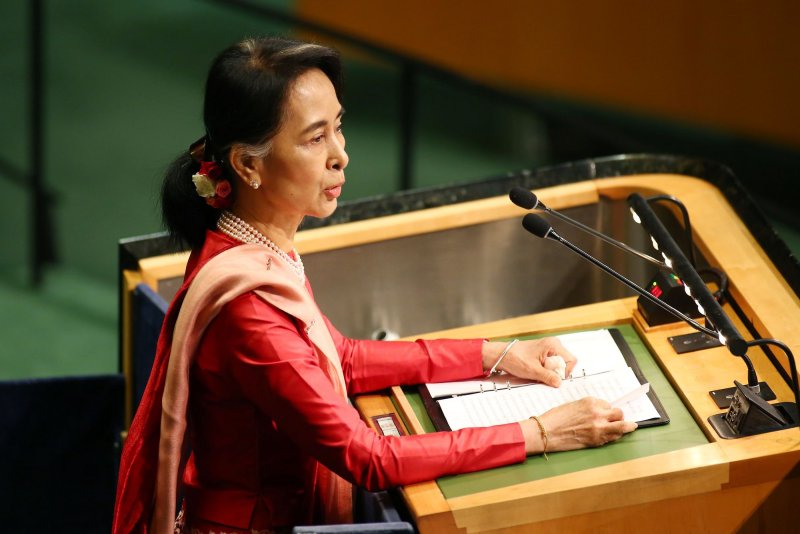Myanmar's leader Aung San Suu Kyi's ruling party won a landslide victory in general elections, according to the country's Union Election Commission on Friday. File Photo by Monika Graff/UPI |
License Photo
Nov. 13 (UPI) -- Myanmar's ruling party won a landslide victory in parliamentary elections as opponents in a military-backed party contested the results.
The National League for Democracy, the party of Myanmar leader Aung San Suu Kyi, had won 399 out of 462 available seats in parliament by late Friday, the country's Union Election Commission said. That number exceeds the 322 seats required to form the next government.
The ruling party's victory surpasses its general election results in 2015, when the party took 390 seats, effectively ending a military dictatorship that lasted for more than 50 years.
Votes were still being counted late Friday, but the Union Solidarity and Development Party, the military-supported opposition, has protested the results.
On Wednesday, the USDP said the results of the election, after early Sunday voting, were not legitimate and asked authorities to hold an "election that is free, fair, unbiased and free from unfair campaigning," according to the BBC. The army has also said early voting showed "errors of neglect" in voter lists and "widespread violation of laws and procedures."
Myanmar's election commission has dismissed the charges, and told the Myanmar Times the accusations are baseless and the results are final.
The NLD claimed a sweeping victory in the capital of Yangon, and in the central regions of the country inhabited by the Burman, the majority ethnic group in the country.
Critics of the election have said the voting deserves scrutiny due to the disenfranchisement of the Rohingya, a minority group that fled the country in 2017 as they fell under the attack of Myanmar's forces. Close to 900,000 Rohingya refugees remain in Bangladesh.
Suu Kyi fell under heavy international criticism for her response to the Rohingya crisis. In 2018, Amnesty International stripped Suu Kyi of an award, but her 1991 Nobel Peace Prize was not rescinded amid accusations of genocide.















